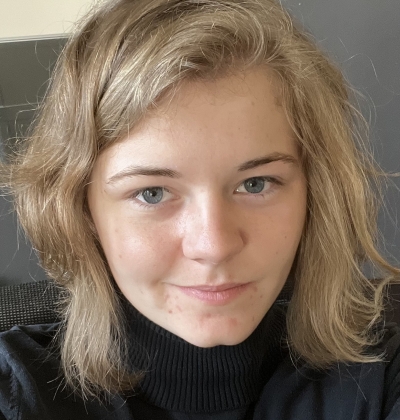
What's Next for Me
I'm a '24, which means my time here is sadly coming to an end. Very soon, in fact. I've written before about my interest in law, and I also mention in nearly every information session I give that I just got done applying to law schools. Well, the cycle is over, and after visiting Duke Law this weekend, I have committed to attend this upcoming fall!
But this post isn't to tell you about Duke Law, as excited as I am about going there. Instead, I want to reflect a little on why I chose law school as my next step and, more broadly speaking, how Dartmouth helps you figure out where you're going next.
When I first stepped foot on campus, I had about five million possible careers in mind and no idea of what they entailed or how to break into them. While I was a first-year, Professor Deutsch (who taught my Writing 5 class) took the time to chat with me about her former career in publishing. She guided me to what were, in her opinion, the best possible internships in the field, and based on her advice, I worked for University Press of Mississippi for about six months during COVID-19. While I loved that experience and my coworkers there, I also realized publishing is not for me for a variety of reasons. I had a similar experience at the Naval Observatory's library, where I got to try my hand at library sciences and archival work. Again, it was super fun for the short term but not aligned with my interests or goals in the long term.
I've had several professors in the English department give me career advice, including a look into what their own careers are like. English academia and teaching were both of interest to me, and Professor Edmondson was helpfully honest about what academia is like as a career, especially in the humanities. And I once again realized that career path was not for me, either.
Law was one of my potential careers I hadn't done research on at this point, so I pulled up the Dartmouth alumni directory and reached out to a lawyer, who generously spoke with me and emphasized that he LOVED practicing law, that law school was hard but didn't have to be grueling, and that a JD could be quite flexible. I wanted to learn more, so I took Professor Nachlis's government class Law, Courts, and Judges. Not only did I learn that I found law fascinating, I also learned that far more people have a hand in shaping and making the law than just elected officials. Judges and their clerks, lawyers, government employees, and academics can all shape the legal system for better or for worse. The next government class I took was Professor Bedi's Constitutional Law, which reaffirmed for me that I found this stuff extremely interesting (and that I was capable of reading cases). Professors Nachlis and Bedi both talked to me about law school, and their honest and encouraging advice gave me the confidence to apply.
When the law school decisions started rolling in, I had a few choices to make and once again needed the advice and viewpoints of those who had been through it before. One professor introduced me to her brother, who had attended Duke Law, so I could talk to him about his experience. Multiple Dartmouth acquaintances and friends connected me with their parents, who also worked in the legal sphere. When he heard I was going to Durham soon, a Dartmouth '21 (admissions officer Kevin Donohue, actually) introduced me to a Dartmouth '20 who was getting her PhD at Duke so I could get lunch with her. I also ran into SO many Dartmouth alumni during the law school open houses I visited. Multiple times, a stranger saw the Lone Pine on the back of my phone case and said, "Dartmouth? I went there!"
If you want to know whether a career might be for you, doing it yourself is the best way to find out. But if you can't do that, talking to people in that field is also extremely helpful. This is where the huge and dedicated network of Dartmouth alumni comes in. The network of Dartmouth students, staff, alumni, faculty, and their friends and family is invaluable for learning about any career you're interested in.


















